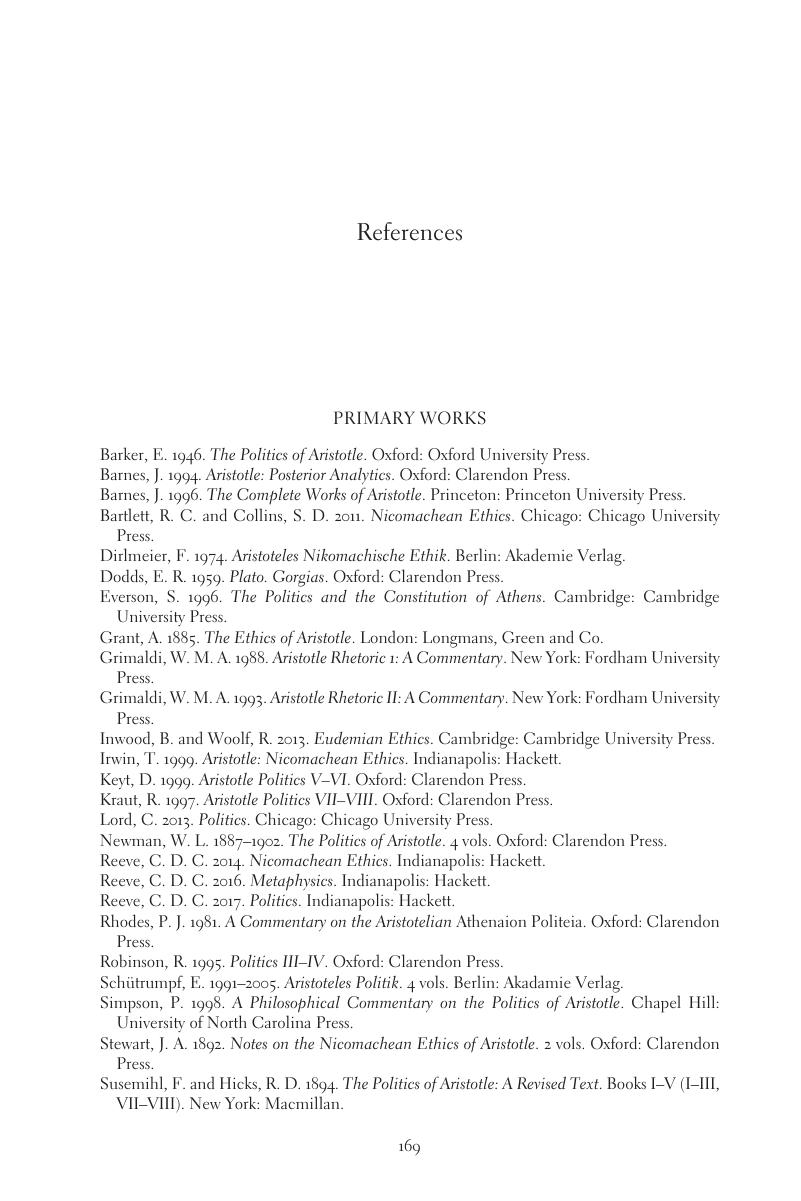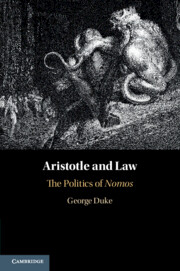Book contents
- Aristotle and Law
- Aristotle and Law
- Copyright page
- Dedication
- Epigraph
- Contents
- Acknowledgements
- Note on the Text
- Abbreviations
- Introduction
- 1 Law As Rational Constraint
- 2 The Legislator
- 3 The Constitutional Relativity of Law
- 4 The Common Advantage and Political Justice
- 5 Stability and Obedience
- 6 Natural Justice and Natural Law
- 7 Equity and the Spoudaios
- Conclusion
- References
- Index
- References
References
Published online by Cambridge University Press: 28 November 2019
- Aristotle and Law
- Aristotle and Law
- Copyright page
- Dedication
- Epigraph
- Contents
- Acknowledgements
- Note on the Text
- Abbreviations
- Introduction
- 1 Law As Rational Constraint
- 2 The Legislator
- 3 The Constitutional Relativity of Law
- 4 The Common Advantage and Political Justice
- 5 Stability and Obedience
- 6 Natural Justice and Natural Law
- 7 Equity and the Spoudaios
- Conclusion
- References
- Index
- References
Summary

- Type
- Chapter
- Information
- Aristotle and LawThe Politics of <I>Nomos</I>, pp. 169 - 178Publisher: Cambridge University PressPrint publication year: 2019
References
Primary Sources
Secondary Sources
- 1
- Cited by

